South Korean president Moon must act as a mediator between the United States and North Korea, while not letting American interests dictate his North Korea policy, argues contributor Gabriela Bernal of Sciences Po Paris and King’s College London.
South Korea’s ability to act as a mediator between the United States and North Korea has come under intense scrutiny ever since the Hanoi Summit fell apart. The Moon Administration is scrambling to try and get both sides back to the negotiating table as soon as possible. However, this has proven a difficult task. Neither side is showing much flexibility on their incompatible demands.The United States will not budge on complete denuclearization and North Korea wants partial sanctions relief. As such, can South Korea do anything to break the impasse or is it better off taking a step back?
A good track record
The Moon government has, so far, experienced great success with inter-Korean diplomacy. From the Pyeongchang Olympics to the summit in Hanoi, South Korea has played a crucial role in facilitating increased engagement with North Korea. These efforts culminated in last year’s Singapore Summit, where the US-North Korea leaders met in person for the first time in history.
Even though this marked a historic moment in US-North Korea relations, the Joint Statement signed by both sides was vague and failed to provide a concrete plan which could lead to complete denuclearization. Nevertheless, the momentum stayed alive and a second summit took place in Hanoi in February. This time, however, the differences between both sides finally came to the fore with both parties walking away from the summit empty-handed.
The North was asking for the partial lifting of sanctions as a prerequisite for concrete denuclearization steps while the United States was steadfast in its demands that North Korea denuclearize first and receive sanctions relief only after real steps towards denuclearization have been taken. Inflexibility from both sides meant the talks ended prematurely with no joint statement, let alone an agreement.
There is still hope, however. Both Kim Jong Un and Donald Trump have expressed interest in holding a third summit and have reaffirmed their positive relationship.
The deadlock
Even though both leaders are open for a third summit, it would be unwise to hold one without first making significant progress through lower-level talks. If neither side adapts their stance, then a third summit would be Hanoi all over again, only this time the following rhetoric might not be as optimistic. North Korea has even set a deadline for the end of this year for the United States to offer mutually acceptable terms for an agreement.
Kim Jong Un expects some kind of sanctions relief before he takes any concrete steps toward denuclearization. He doubled-down on his country’s stance at the April 13 inaugural meeting of the 14th Supreme People’s Assembly. There, Kim gave a speech in which he mentioned self-reliance over twenty times and emphasized North Korea’s determination to succeed in achieving its economic goals in spite of measures imposed on it by foreign actors. He explicitly stated that: “We will no longer obsess over lifting sanctions imposed by the hostile forces but we will open the path to economic prosperity through our own means.” This seems like a rather stern warning to the United States while reaffirming the North’s commitment to growing its national economy.
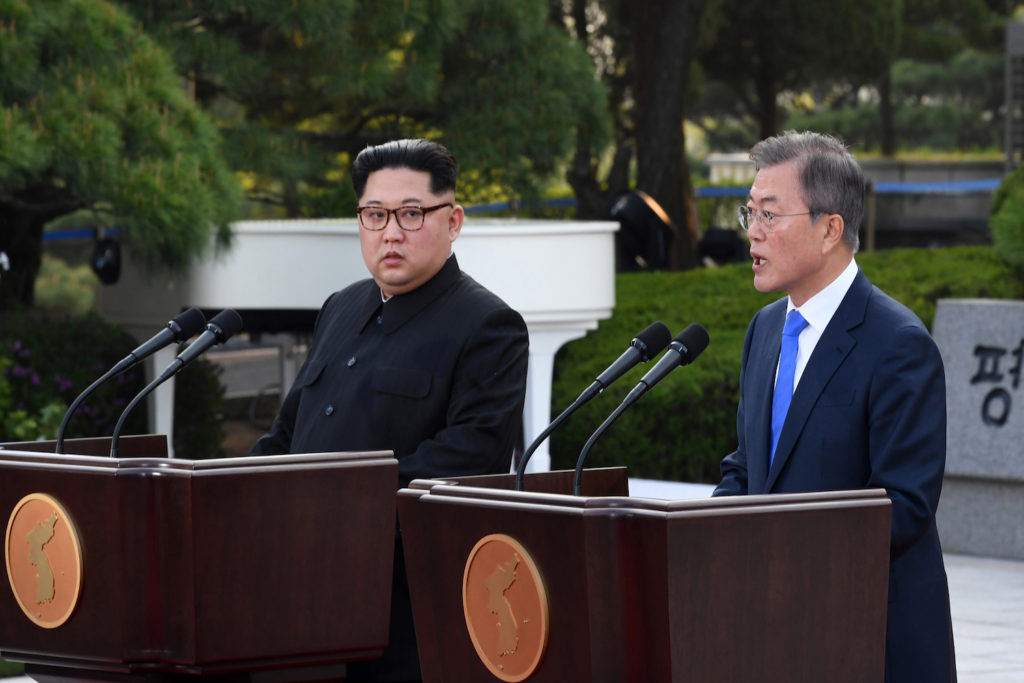
South Korean President Moon Jae-in and North Korean leader Kim Jong Un announce the joint Panmunjeom Declaration in the forecourt of the Peace House in Panmunjeom on April 27. Photo: Inter-Korean Summit Press Corps
Kim also expressed that “if the United States sticks to its current political calculations, it will darken the prospects for solving the problem and will in fact be very dangerous.” Kim did not expand on what he meant by “very dangerous” but it’s possible that he is referring to a return to missile testing and the continuation of the country’s nuclear weapons program. If so, this would plunge US-North Korea relations back to 2017 tense levels and instantly destroy all of South Korea’s mediating efforts.
Still, the US side has remained diplomatic and interested in continuing talks with its North Korean counterparts. US Secretary of State Mike Pompeo said he’d like to come to an agreement with North Korea sooner than the end of the year while also expressing great confidence in the prospects of holding a third US-North Korea summit. Still, Pompeo said on April 15 that the only way sanctions would be lifted would be if North Korea no longer had nuclear weapons; again, reaffirming a hardline approach.
An uninspiring Moon-Trump meeting
The US and South Korean leaders met in Washington, D.C on April 11 to talk about possible ways forward after Hanoi. However, little progress was made. Trump advocated a “big deal” in which North Korea would give up its nuclear weapons in exchange for sanctions relief and economic opportunities. Trump reaffirmed his hope for helping create an economically strong North Korea while ensuring no additional sanctions would be implemented at this time. President Moon, on the other hand, advocated for top-down diplomacy and continued dialogue between all parties. He also refused to call Hanoi a failure, instead seeing it as part of a “bigger process that will lead to a bigger agreement.”
South Korea has long preferred a step-by-step approach, with sanctions relief and denuclearization steps taking place in tandem and South Korean analysts don’t see sanctions as an effective means of getting North Korea to change its ways. Nevertheless, Moon was unable to make significant headway with Trump, with the situation still looking largely the same since Hanoi. Still, it wasn’t all bad. Trump expressed his strong commitment to the US-ROK alliance and even said he’d be open to a three-way summit between the United States, North Korea, and ROK.
What can South Korea do?
Both the United States and North Korea seem to be stubbornly sticking to their Hanoi positions. So, what, if anything, can South Korea do to try and mediate between the two parties? First of all, Moon has to make sure he does not reverse progress made on improving inter-Korean relations over the past year. Any denuclearization deal will ultimately be made between America and North Korea; it won’t be a three-way deal including the ROK. As such, Moon must focus on what he has more control over; namely, direct bilateral relations with his northern neighbor.
South Korea shares the United States’ ultimate goal for the complete denuclearization of North Korea, but it is a process it only has limited direct influence over. For the sake of ROK national security, Moon must make sure to keep Kim on his good side. The North Korean leader has already expressed disapproval of South Korea’s recent behavior, stating that Seoul “should not act as an “overstepping mediator” or a “facilitator” and should rather get its mind straight as a member of the [Korean] nation and boldly speak up for the interest of the nation.” Thus, Kim’s advice to Moon seems to be something like this: Start acting more Korean and less like an American diplomatic tool.
President Moon is playing a dangerous balancing game that might see his valiant efforts wasted due to misperceptions by the North. Moon understands what’s at stake and even referred to South Korea as having the “status as the master of the fate of” and the “architect of the peace process on the Korean Peninsula.”
Stay the course
The Korean Peninsula is made up of two countries only, and the United States is not one of them. Yes, maintaining strong relations with the United States — the ROK’s most important ally — is of utmost importance but this does not mean Seoul must act exactly according to Washington’s policy. Both South Korea and the United States strive towards the same end—denuclearization of the peninsula—but their preferred means differ. Seoul, like North Korea and China, supports a step-by-step process rather than the “big deal” CVID approach the United States is aiming for. Still, this does not mean both countries cannot cooperate with each other to achieve their mutual, long-term goal.
South Korea is its own sovereign country with its own national interests and policies and as such it should let Seoul, not Washington, guide its policy decisions. President Moon has tried his best to mediate between North Korea and the United States, but the Hanoi Summit proved that he only has so much influence over these two strong-minded leaders. For now, the best way for South Korea to mediate is to listen to both sides by maintaining communication lines open and promoting diplomacy as the best means to achieve long-term peace, while following policy set forth by the Blue, not the White House.
Gabriela Bernal is currently a dual graduate student at Sciences Po Paris and King’s College London. Her focus lies mainly on East Asian Security, specifically on the Korean Peninsula. She also runs The Peninsula Report, a blog on Korean affairs.
- “I Love My Body”: Hwasa and Female Empowerment in K-Pop and Korean Society - May 6, 2025
- English Fever in South Korea - February 24, 2025
- South Korea’s Medical School Expansion – Cure Worse than the Disease? - October 20, 2024

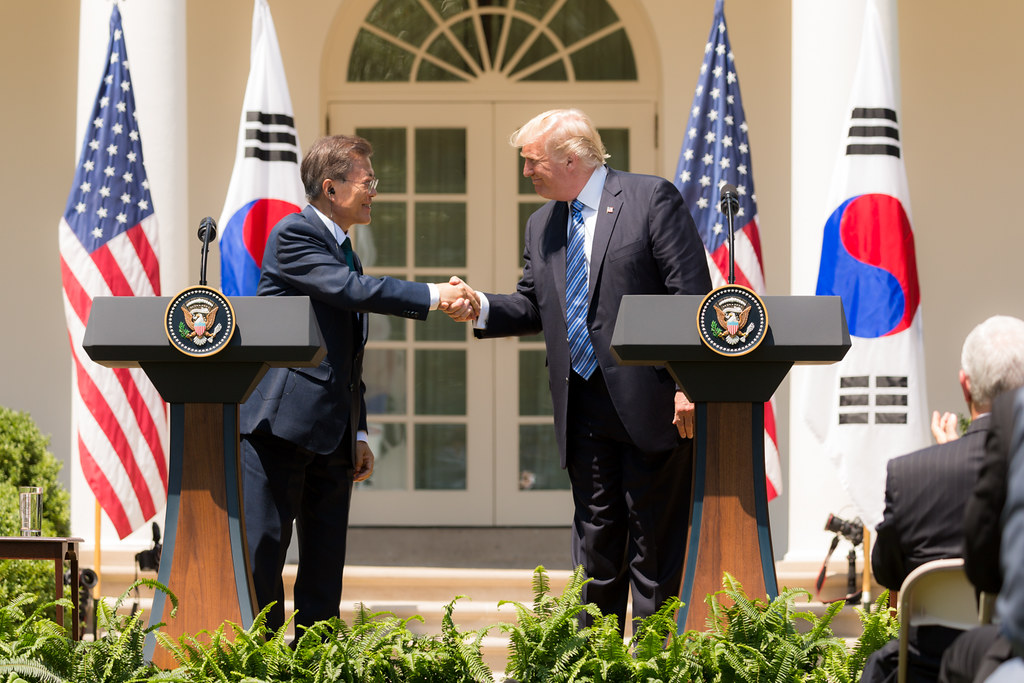
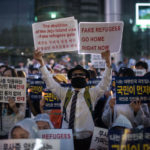
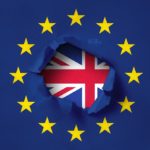
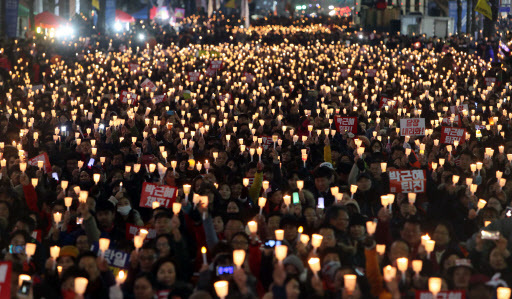
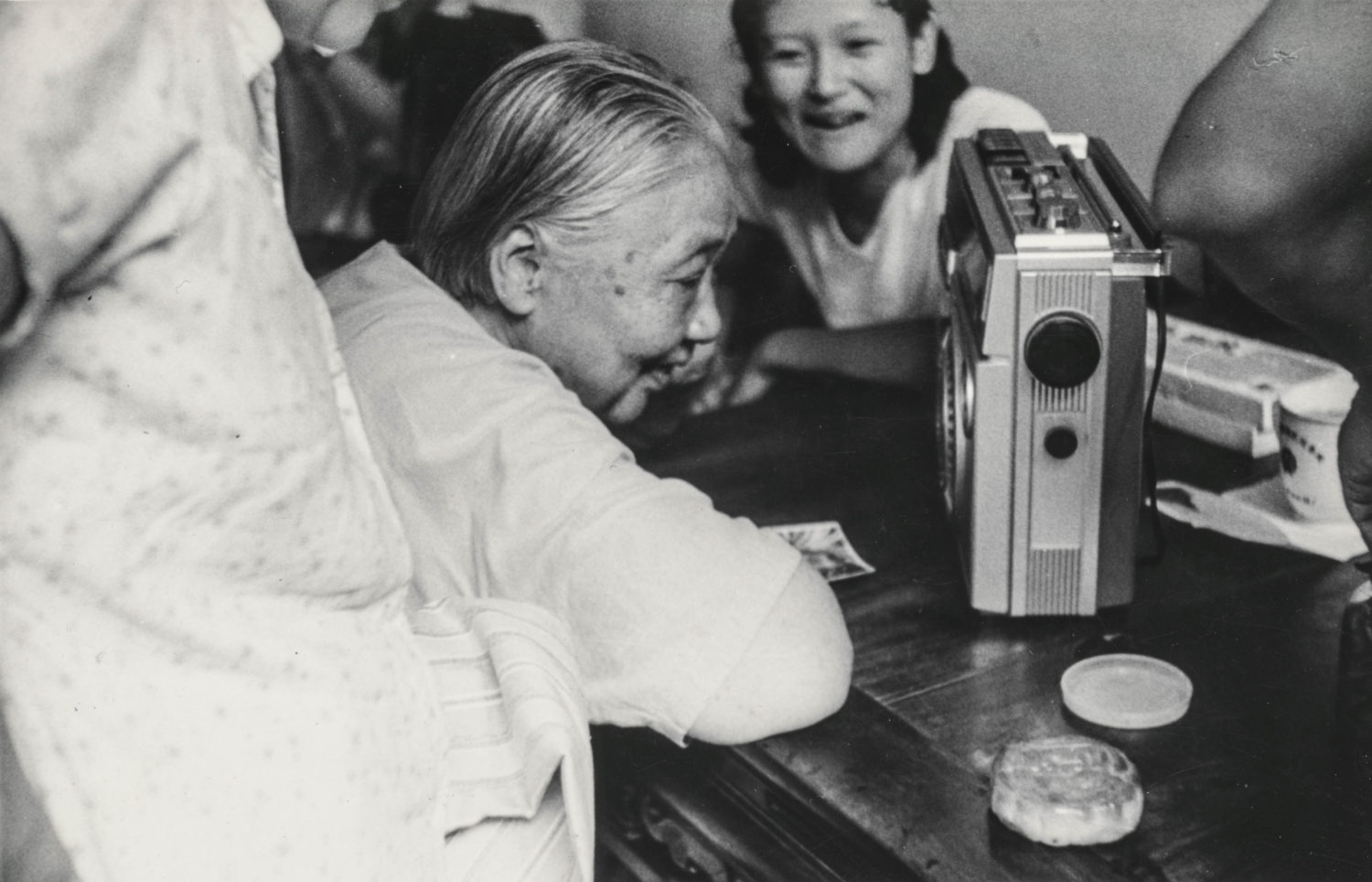

4 Comments
Trump and Kim are Helping Me Sleep at Night - Novasia
6 years ago[…] of a Korean newspaper. The entire page is devoted to a color photo of South Korean President Moon Jae-in and North Korean leader Kim Jong-un, riding in a drop-top limousine through the streets of […]
Cho Kuk: Righteous reformist or corrupted hypocrite? - Novasia
6 years ago[…] Gabriela Bernal is a dual graduate student at Sciences Po Paris and King’s College London. Her focus lies mainly on East Asian Security, specifically on the Korean Peninsula. She also runs The Peninsula Report, a blog on Korean affairs. She has previously written for NOVAsia. […]
Coronavirus panic hits South Korea - Novasia
5 years ago[…] Gabriela Bernal is a Korea analyst and current translator at The Daily NK. She holds degrees in international peace and security from King’s College London and human rights from Sciences Po Paris. She is also the founder of The Peninsula Report, a blog on Korean affairs. She has previously written for NOVAsia. […]
South Korea Telegram Case & Gaps in the Legal System - Novasia
5 years ago[…] Gabriela Bernal is a Korea analyst and current translator at The Daily NK. She holds degrees in international peace and security from King’s College London and human rights from Sciences Po Paris. She is also the founder of The Peninsula Report, a blog on Korean affairs. She has previously written for NOVAsia. […]
Comments are closed.